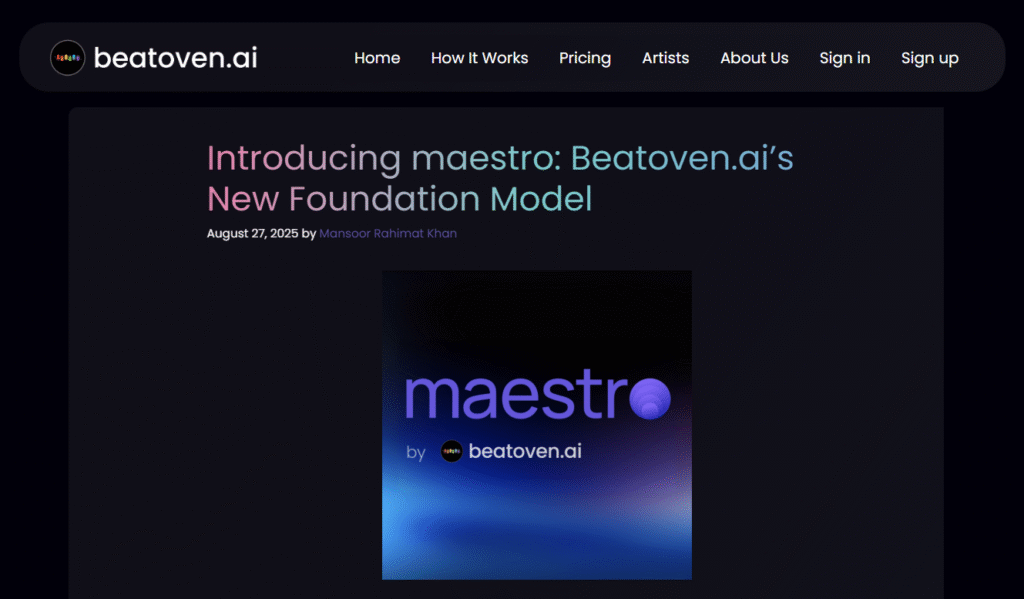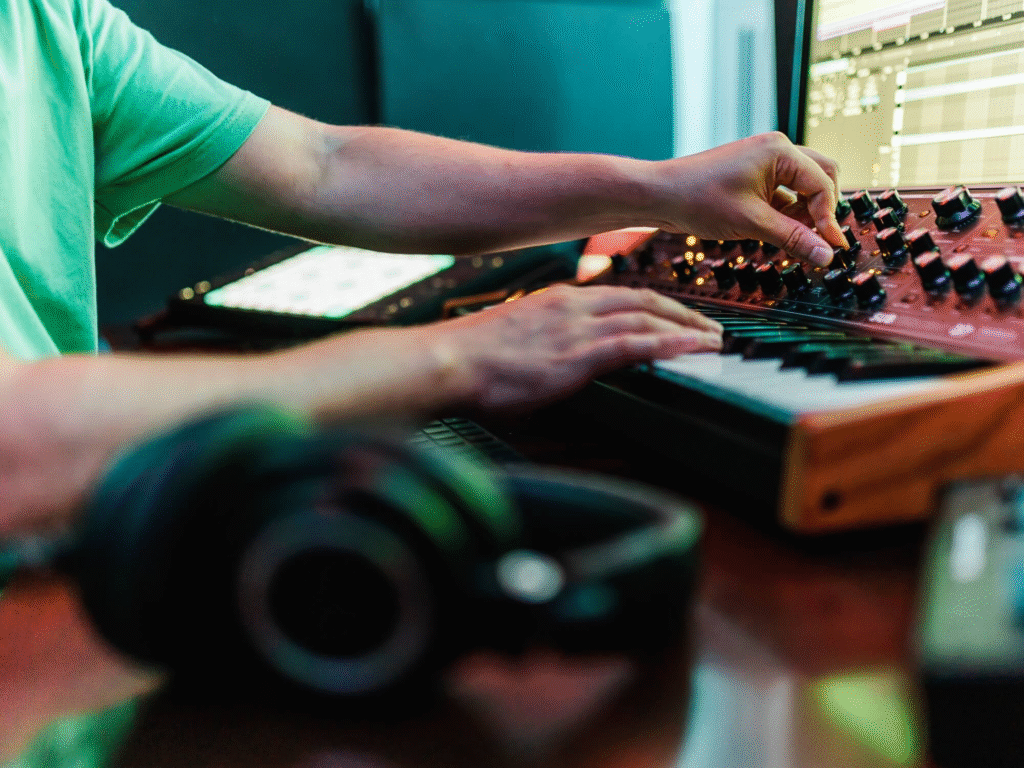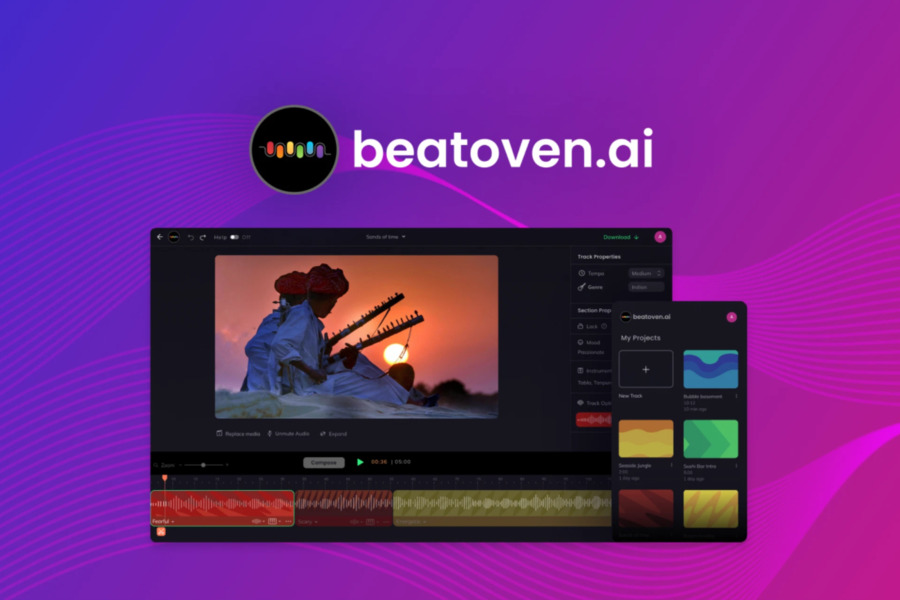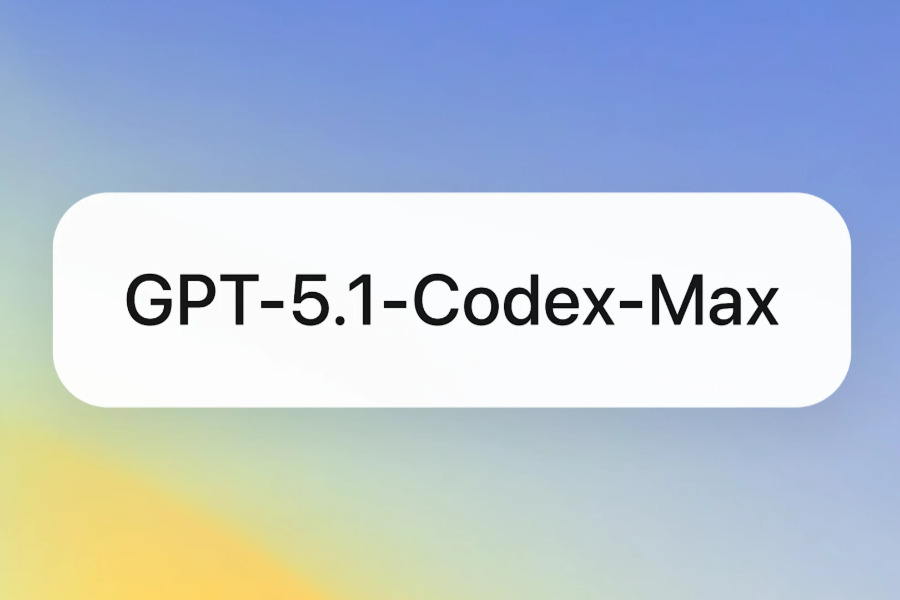In a significant move within the AI-generated music space, Beatoven.ai has officially launched Maestro—a new foundation model for generative music creation.
Unlike many AI music tools, Maestro emphasizes ethical sourcing and legal compliance through formal partnerships with rights holders. This approach guarantees that all generated music is fully licensed, while also ensuring that artists, composers, and rights holders receive ongoing royalty payments.
Keep reading, let’s delve into how Beatoven.ai’s newly unveiled Maestro model is setting a new standard for ethical AI music generation.
What Is the Maestro Model?
Maestro is as the core engine within Beatoven.ai’s expanding suite of AI-powered music production tools. It enables users to generate original, high-quality instrumental tracks tailored to a variety of needs. The company has also announced that upcoming versions will include support for vocals and sound effects.
Developed in collaboration with Musical AI, a specialized music AI rights management platform, Maestro incorporates traceability features that attribute AI-generated output to specific original works. This ensures transparency, protects artists’ copyright, and establishes a legal framework for commercial use.
Key Features of Maestro

- High-Quality Output: Delivers professional-grade audio at a 44,100 Hz sampling rate with rapid generation times.
- Customization Options: Users retain extensive creative control, from text-based prompts to fine-tuning elements such as instrumentation, genre, tempo, and key.
- Genre Versatility: Capable of producing tracks across numerous styles, including Jazz, Rock, Latin, Ambient, Cinematic, House, and Techno.
- Duration Flexibility: Generates music segments of precise length, supporting clips up to 2 minutes and 30 seconds.
- Commercial Licensing: All generated music is cleared for commercial applications.
- Ethical Foundation: Built on legally sound partnerships with rights holders, incorporating a transparent revenue-sharing model.
How Maestro Benefits the Music Industry
Amid growing scrutiny around copyright and AI-generated content, Beatoven.ai’s Maestro introduces a sustainable business model that supports both technological progress and artist rights. Rather than training on unauthorized material, Maestro leverages properly licensed datasets, demonstrating that AI development need not rely on copyright infringement.
This initiative provides a consistent revenue source for musicians and composers while encouraging broader adoption of ethical AI practices. The integrated royalty mechanism sets a new benchmark for equitable compensation in an industry where royalty distribution has often been problematic.
As Maestro continues to evolve—with planned introductions of vocal and SFX capabilities—its influence on creative workflows is expected to grow. The model exemplifies how AI can collaborate with human artists, fostering mutual growth and innovation.
Who Is Maestro Best For?

Maestro is designed to serve a wide spectrum of users—from amateur creators to professional studios. Its user-friendly interface and adaptable features make it ideal for content creators, filmmakers, podcast producers, and advertising agencies in need of original, rights-cleared music.
Independent artists and composers also stand to benefit from the platform’s licensing structure. By contributing their work to Beatoven.ai’s training corpus, they gain a recurring revenue stream based on usage, supplementing income from traditional channels such as live performances and sales.
Additionally, educators and students can utilize Maestro as an interactive tool for studying music composition, genre characteristics, and arranging—without requiring deep theoretical knowledge or access to expensive instruments.
Conclusion on Maestro Model
The launch of Maestro by Beatoven.ai is a landmark event that demonstrates the potential for a new era of ethical generative AI.
By prioritizing fair compensation and legal collaboration, Beatoven.ai is not only advancing technology but also building a sustainable and equitable ecosystem for music creators. Maestro proves that it is possible to innovate responsibly, creating a win-win situation for both technology companies and the artists whose work makes it all possible.
As the model evolves with new features like vocals and sound effects, it will likely become an indispensable tool for creators across various industries. Maestro’s success could pave the way for other AI models to adopt a similar rights-holder-first approach, ultimately fostering a more collaborative and fair digital landscape for all.



